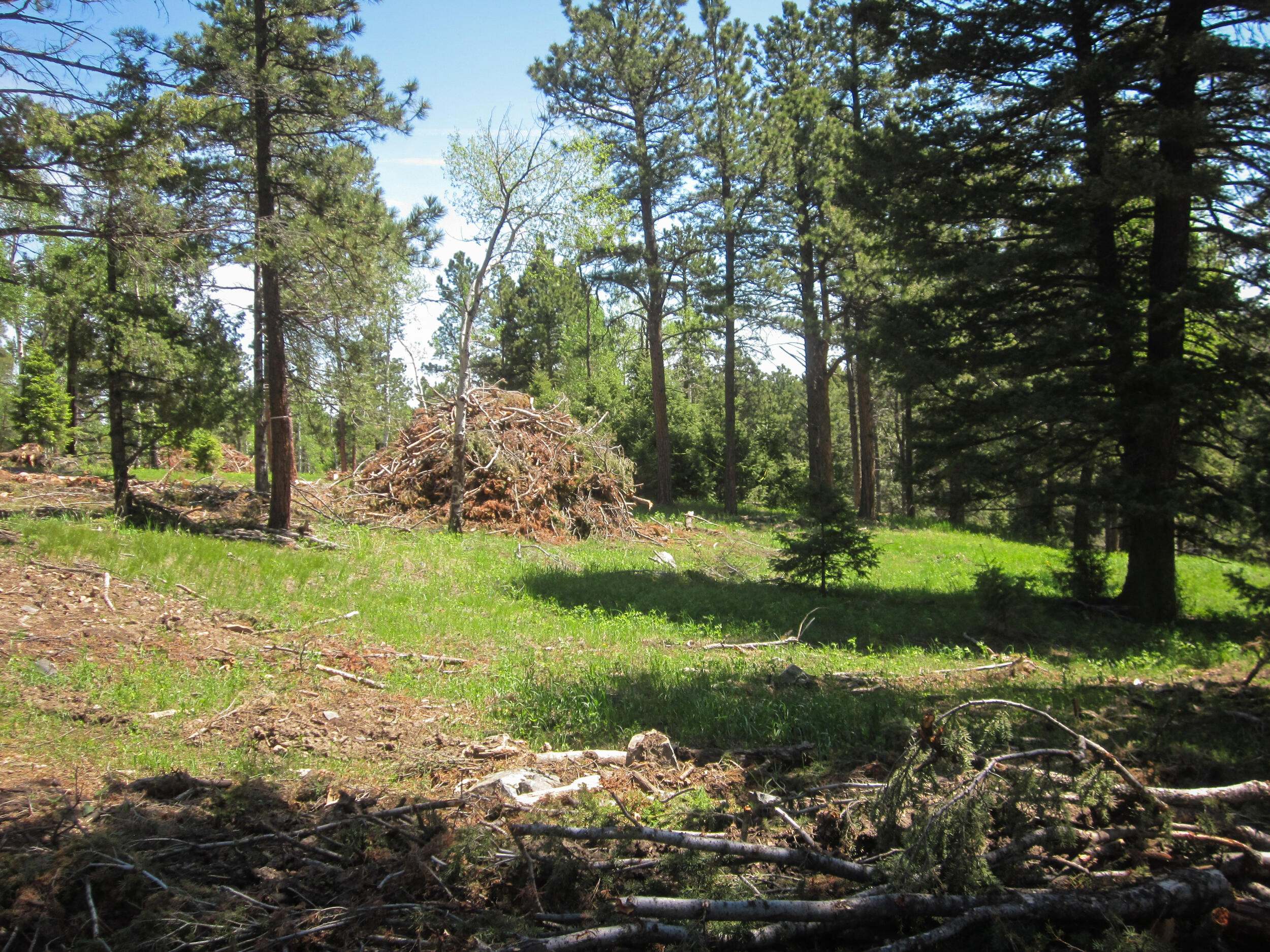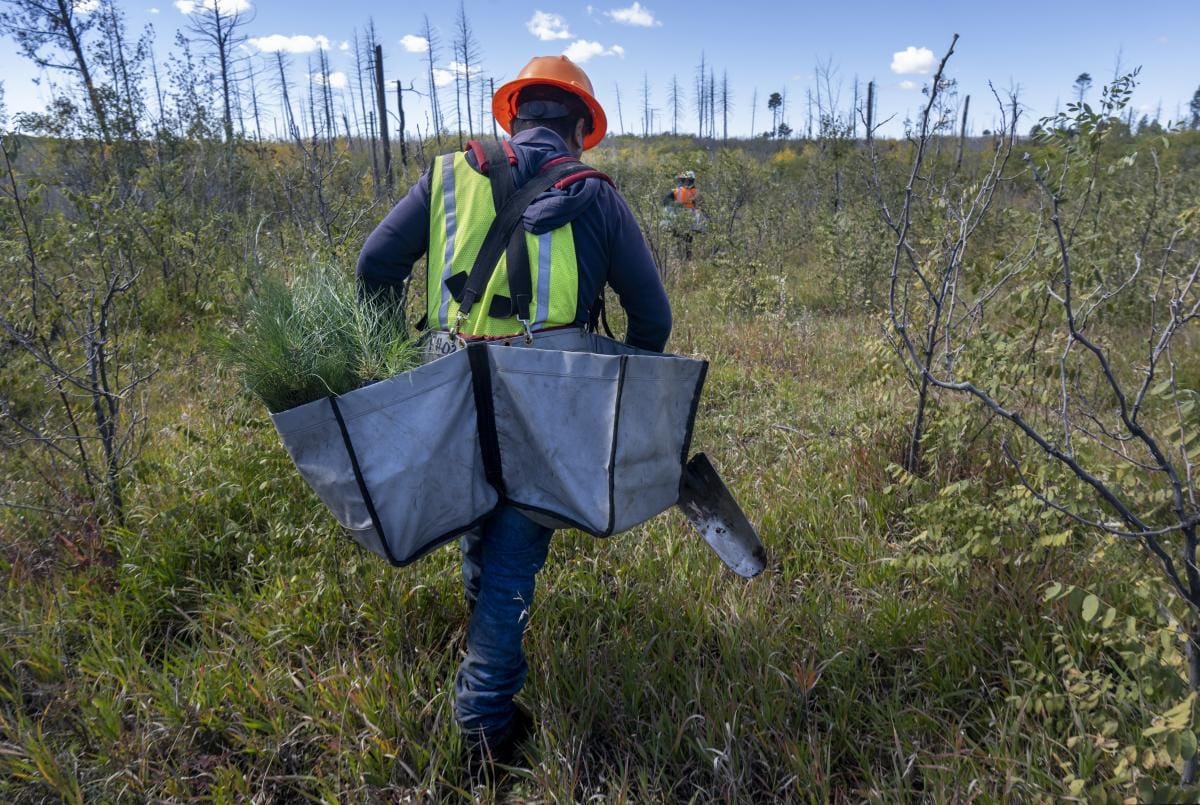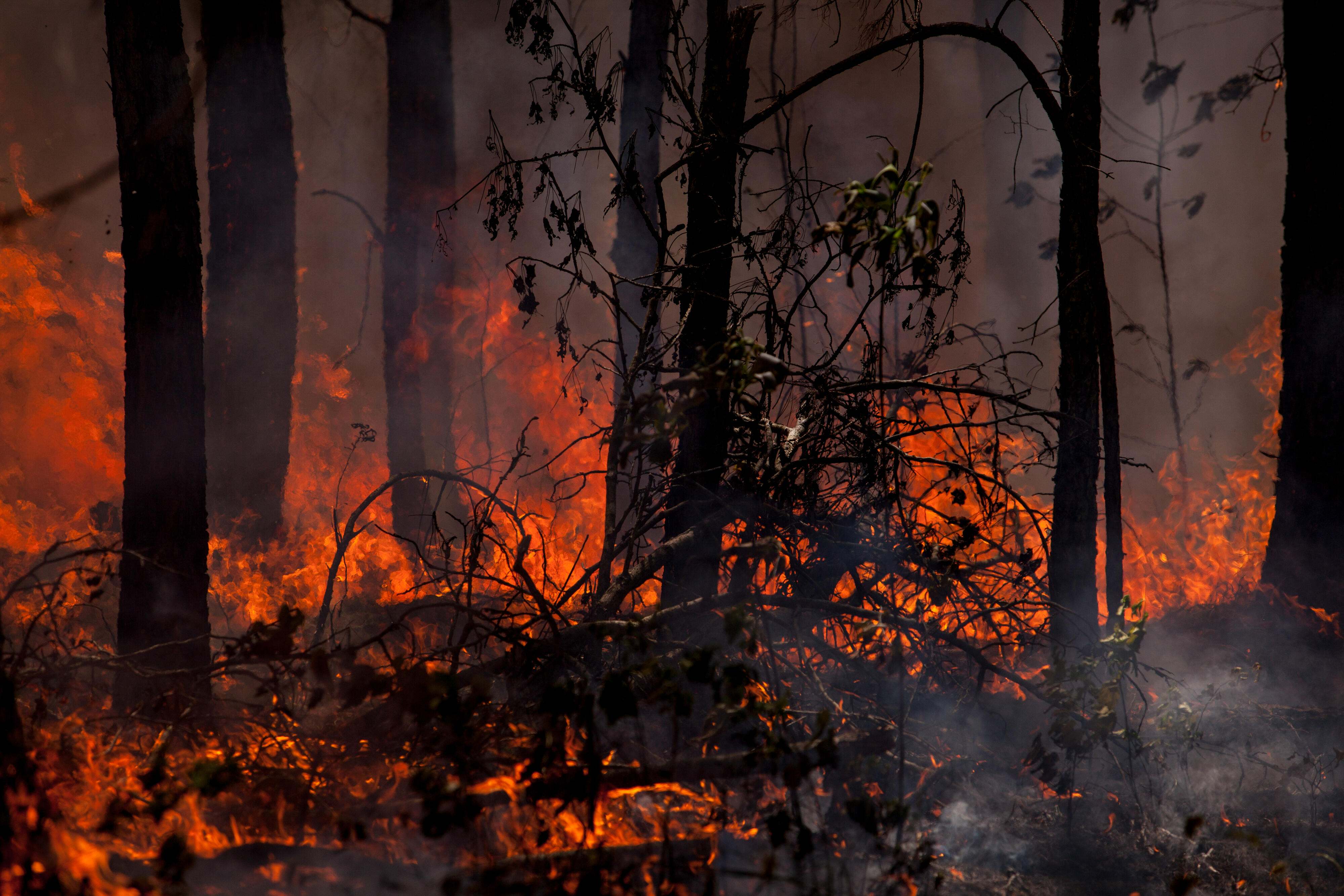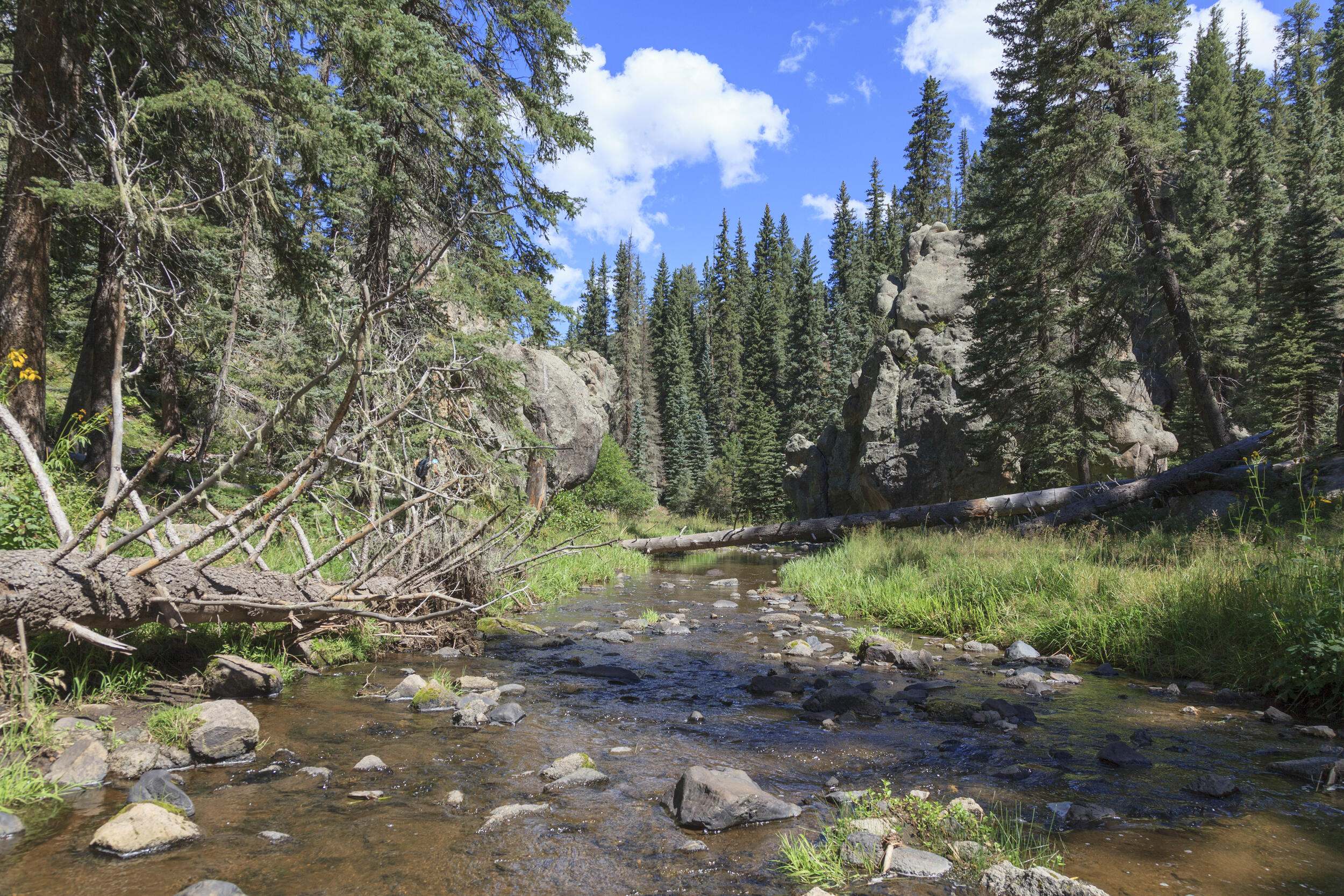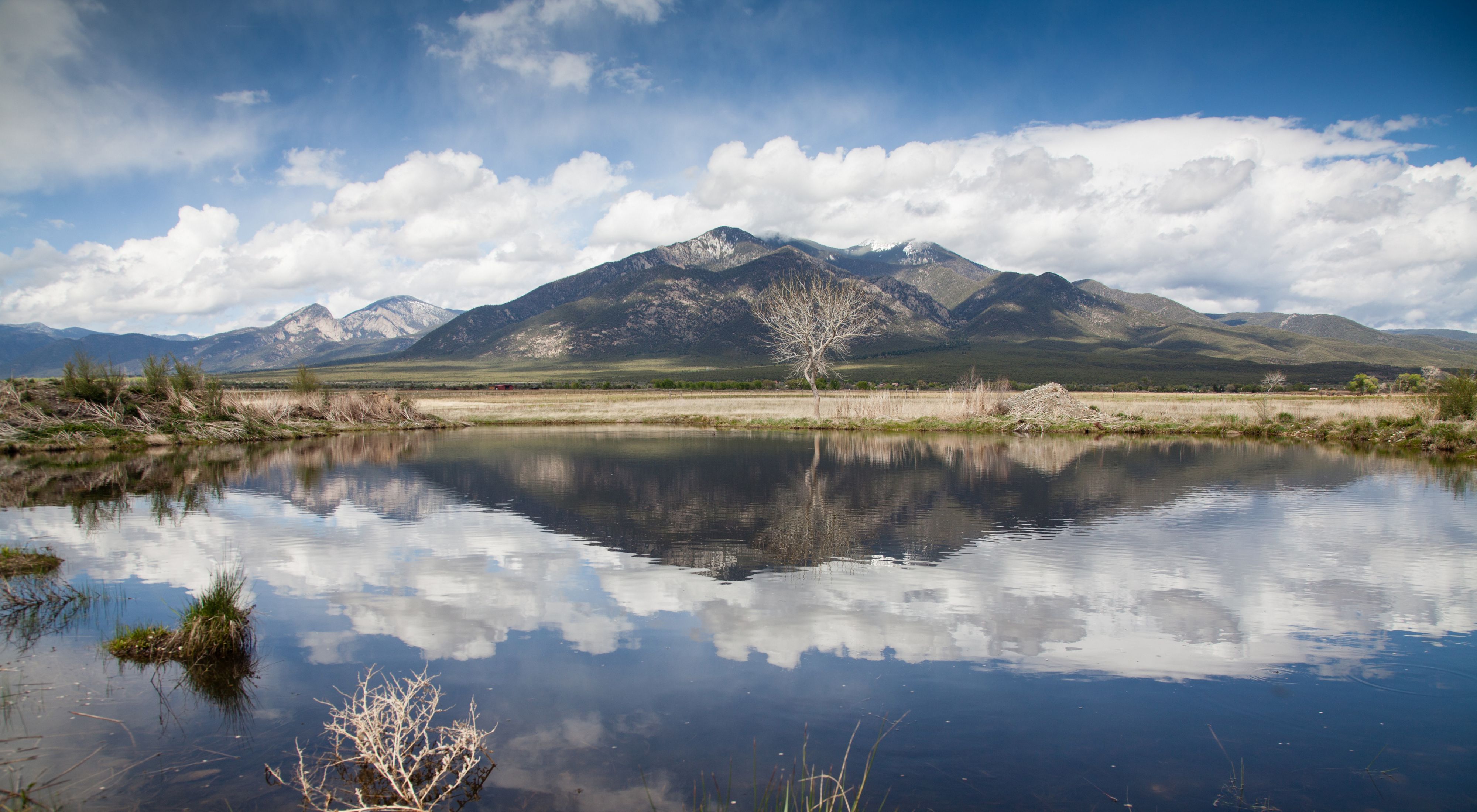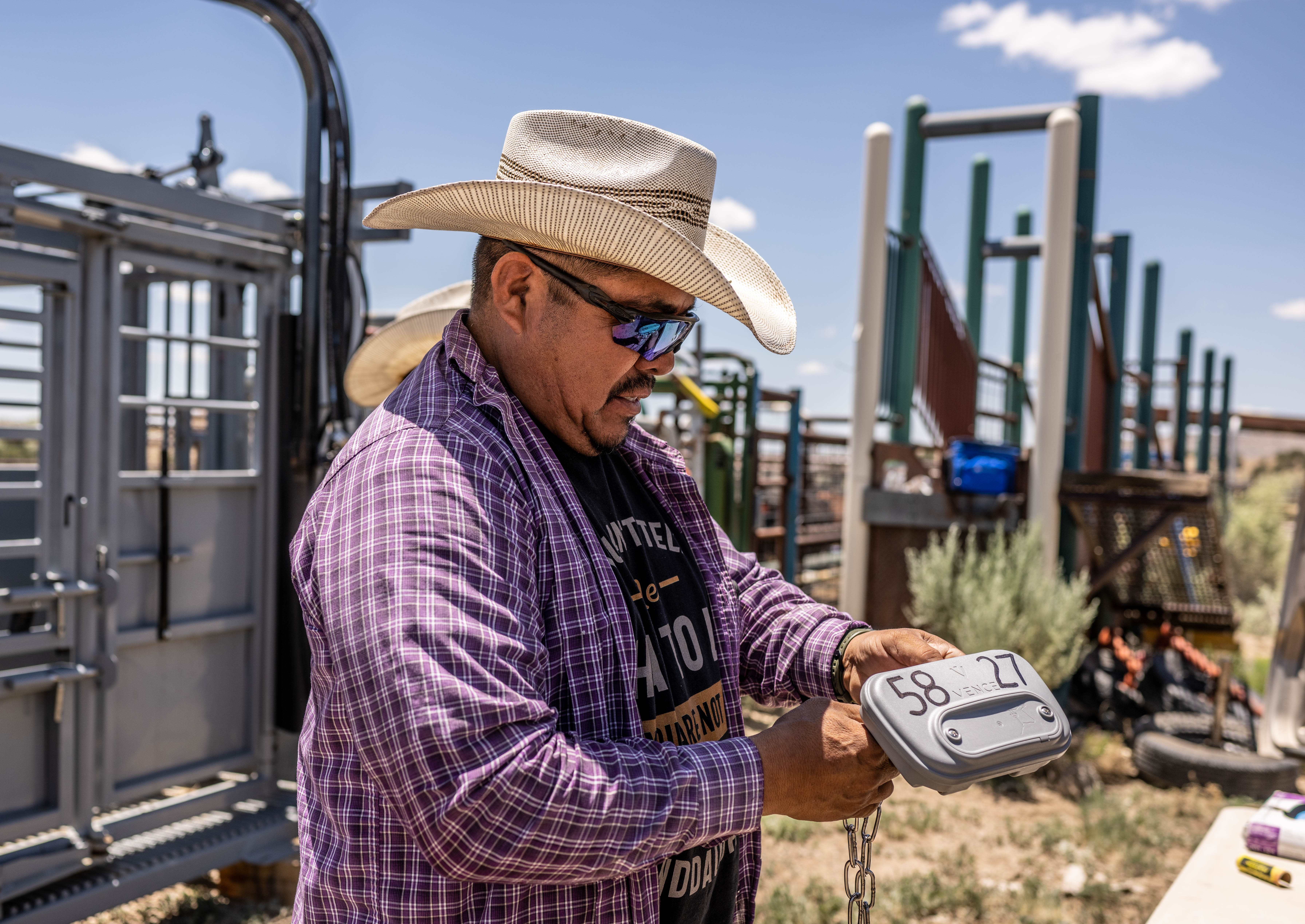
Working with Indigenous Peoples
In New Mexico, we acknowledge and learn from our Indigenous communities.
At the start of planting season, John Waconda uses his plow to turn over the soil. This year, he noticed birds digging in the fresh soil for worms. A sure sign of spring once again. He thought about how his dad and their ancestors passed on these important farming traditions through the centuries and how they continue today.
John is the New Mexico Chapter’s first-ever Indigenous Partnerships program manager. His stories, along with Indigenous perspectives and values, and years of resource management experience make him the perfect person to expand the program. He came out of retirement for this job because he said there’s too much work to do and saw many opportunities that could make a difference.

“I’m concerned about losing tradition and culture and being able to protect and preserve the forest and its many resources,” he said. “We want the best for our children. I want to leave our homelands in better shape than what I had.”
Connecting with the land is paramount to Native Americans’ livelihoods, traditions, and cultures. That connection was torn apart because of colonization, diseases brought into the U.S. from Europe and the removal of fire.
He added: “Native peoples learned to live with and manage fire for centuries and to use it in ways that enrich their communities. However, the inability to do so on a large scale has caused tension and a deep loss of connection to the land.”
Leading the Way
Since starting his job in October of 2021, John, a citizen of the Isleta Pueblo, has steadfastly expanded the chapter’s collaboration with many of the state’s Pueblos. This makes a difference on many fronts, including our forests, water, policies, and farms in the Land of Enchantment. Learn about some of our collaborations by clicking on the tiles below.
Collaborative Projects
Cultures, viable communities and healthy land and water are all interconnected. Conservation success benefits people and nature.
Learning from the Past with a New Worldview
While TNC has partnered with Indigenous Peoples across the globe for many years, we have made mistakes and are still part of the problem. To that end, TNC created the North America Indigenous Landscapes and Communities program, hiring Brie Fraley, a citizen of the Tolowa Dee-ni’ Nation, to lead the effort.
We want to support and engage Indigenous peoples as they strengthen their voices, choices and actions to manage their homelands in ways that improve lives and create healthy lands and waters to support sustainable traditional and cultural resource practices. In order to do that, we are taking a close look at our 70-year-old approaches to conservation and investing in review through deep listening, resulting in new approaches in the way we work.
Last year we adopted our human rights policy and have invested in bodies of work such as the Human Rights Guide. In order for our work to be successful and sustainable, we are leaning into developing heartfelt relationships that are leading us to new ways of working.
Quote: Brie Fraley
In my Indigenous worldview, humans are not dominant & separate from the gifts of nature; we are equal to & live in a reciprocal relationship with the land. It's our responsibility to care for our relations as they care for us too.
For Brie, success looks like healthy, thriving Indigenous communities where land and people have healed and there’s restorative justice.
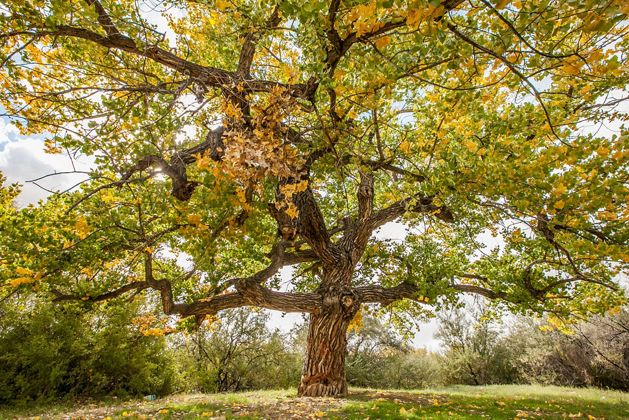
Together We Can Protect New Mexico Nature
Sign up to receive monthly conservation news and updates from New Mexico. Get a preview of New Mexico’s Nature News email.
Gratitude
TNC is committed to creating, promoting, and perpetuating a narrative and future in which nature and people can thrive and coexist. Our mission must encompass inclusion, collaboration and support of the ancestral and current stewards of our natural systems.
We pay our respect to these traditional stewards, past, present, and emerging, who have been the custodians of these lands and waters since time immemorial.
We take this opportunity to acknowledge the ancestral homelands of the Indigenous Peoples of the U.S. Southwest, including New Mexico, which is home to 19 Pueblo communities, Fort Sill Apache, Jicarilla Apache, Mescalero Apache, Navajo Peoples and Ute Mountain Tribe.
Thank you to the Indian Pueblo Cultural Center for their support in developing TNC’s land acknowledgment in New Mexico.
